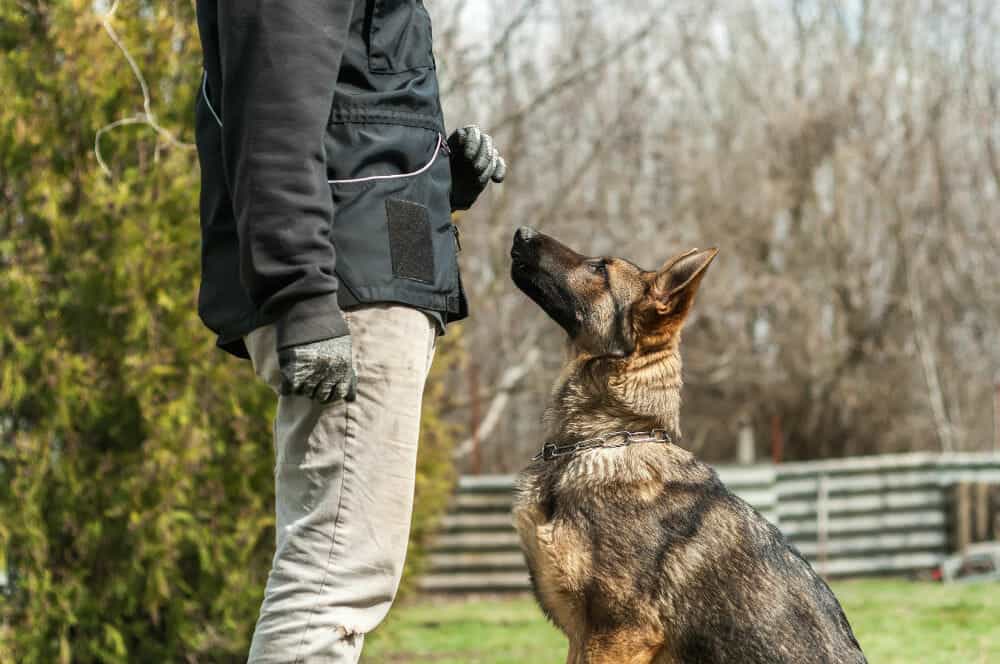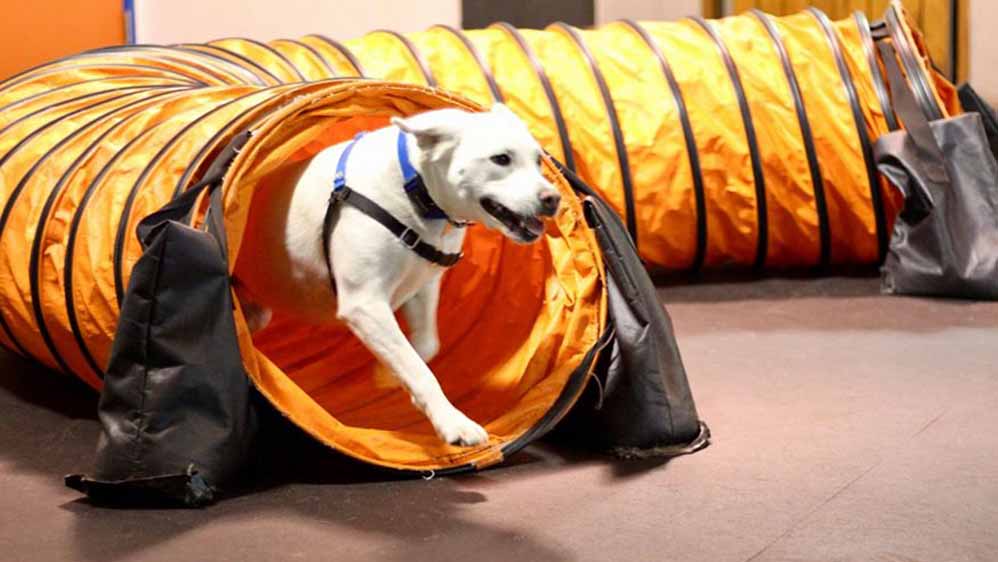Dog Training Charlotte NC: Your Course to a Well-Behaved Dog
Dog Training Charlotte NC: Your Course to a Well-Behaved Dog
Blog Article
The Ultimate Guide to Dog Training: Building a Delighted, Obedient Pet
Effective pet training is a complex process that pivots on a deep understanding of canine actions and the application of tried and tested strategies. By embracing favorable support and consistent command usage, pet dog owners can cultivate not just obedience however also a solid, relying on partnership with their canines.

Comprehending Canine Behavior
Just how does a canine's actions mirror its emotional and psychological state? A pet's activities can serve as a home window right into its sensations, requirements, and general psychological well-being.
Body language additionally plays an important function in understanding canine behavior. A kicked back posture and open mouth signal comfort, whereas stressful muscular tissues and pinned ears may recommend anxiety or aggressiveness. Observing these signals is essential for identifying the source of a canine's actions, whether it comes from fear, enjoyment, or aggravation.
In addition, a pet dog's communication with its atmosphere and various other pets can supply understanding into its psychological state. A pet that engages playfully with various other pet dogs is most likely feeling social and safe and secure, while one that displays avoidance or aggression may be experiencing stress and anxiety or instability. Comprehending these behavioral hints is crucial for cultivating a strong connection between the animal and the proprietor, ultimately contributing to the pet's emotional health and wellness and well-being.
Crucial Training Methods
Reliable dog training techniques are important for promoting desirable actions and strengthening the bond in between a canine and its proprietor. Using positive support is just one of the most efficient approaches, where benefits such as deals with, appreciation, or play are provided to reinforce preferred actions (dog training charlotte nc). This motivates the pet to duplicate those actions, developing a positive knowing environment
Uniformity is an additional crucial aspect in canine training. Commands must be clear and consistent, and all member of the family must apply the same rules to stay clear of confusing the canine. Timing is just as vital; incentives should be offered quickly after the preferred actions to develop a clear link between the activity and the reward.
In addition, short and engaging training sessions are effective, as dogs have differing attention spans. Aim for sessions of 5 to 15 minutes, relying on the pet's age and energy level. Integrating play into training can additionally improve inspiration and satisfaction for both the dog and the owner.
Lastly, perseverance is vital. Pets learn at their own speed, and keeping a tranquil temperament will certainly aid reduce aggravation, guaranteeing a positive training experience. These necessary techniques lay the groundwork for successful dog training and a harmonious partnership.
Basic Commands to Teach

When showing these commands,Uniformity and favorable reinforcement are crucial. Use deals with, praise, and playtime to compensate your pet dog's successes. Short, frequent training sessions are a lot more reliable than long, irregular ones. By instilling these fundamental commands, proprietors furnish their dogs with the skills required for a well-behaved and unified partnership.
Attending To Usual Behavioral Problems
Recognizing and addressing usual behavioral issues in pet dogs is crucial for promoting a harmonious read more partnership between animals and their owners. Numerous pets show behaviors such as excessive barking, eating, or aggressiveness, which can come from anxiousness, boredom, or absence of appropriate training. Identifying the origin of these behaviors is the initial action towards reliable treatment.
For example, too much barking might suggest a demand for interest or a reaction to ecological stimulations. In such situations, proprietors must assess the canine's setting and give adequate mental excitement, such as interactive toys or regular workout. Chewing can typically be managed by rerouting the actions to appropriate chew things and guaranteeing that the canine has sufficient exercise to reduce boredom.
Hostile habits needs mindful handling and might necessitate expert training aid. It's important to understand that punishment can aggravate stress and anxiety and aggression, bring about a cycle of behavior problems. Rather, focus on favorable support strategies to reward preferable behaviors and strengthen a sense of safety.
Building a Positive Training Environment
Creating a positive training environment is essential for strengthening desirable actions in canines and alleviating behavioral issues. This setting ought to be characterized by consistency, inspiration, and a clear understanding of the training purposes. By developing a routine, pets discover what is expected of them, which helps in reducing stress and anxiety and confusion.
Using positive reinforcement strategies, such as treats, appreciation, and play, promotes a feeling of protection and motivation in the dog. Rewarding great behavior quickly and constantly reinforces the preferred activities, making the training process much more effective - dog training charlotte. Furthermore, fitness instructors should remain client and calmness, as pet dogs are sensitive to their handlers' emotions
The training area ought to be devoid of interruptions to ensure the pet dog can focus on the tasks at hand. Consider making use of a quiet area or a safe outdoor location. Including play and socialization into training sessions promotes a well-shaped method, boosting the pet's knowing experience.
Ultimately, a positive training setting supports a strong bond between the canine and handler, causing a loyal, happy pet. By prioritizing this environment, family pet proprietors can effectively address behavior challenges and grow a successful training journey.
Conclusion
Reliable canine training counts on a detailed understanding of canine behavior and the application of favorable reinforcement techniques. By understanding necessary commands and addressing behavior concerns with patience and clear communication, proprietors can cultivate a solid bond with their family pets. Developing an encouraging training atmosphere enhances safety and count on, inevitably resulting in the development of a cheerful and mannerly companion. Adopting these concepts makes sure a satisfying training experience for both dogs and their proprietors.
Reliable pet dog training is a multifaceted process that pivots on a deep understanding of canine behavior and the application of tested techniques. A dog that involves playfully with various other canines is most likely sensation social and safe, while one that exhibits evasion or hostility might be experiencing tension or insecurity.Effective dog training strategies are vital for cultivating desirable behaviors and enhancing the bond in between a dog see post and its owner.Developing a favorable training setting is essential for reinforcing preferable actions in pet dogs and alleviating behavioral issues.Reliable pet training counts you can try here on a detailed understanding of canine behavior and the application of favorable reinforcement methods.
Report this page